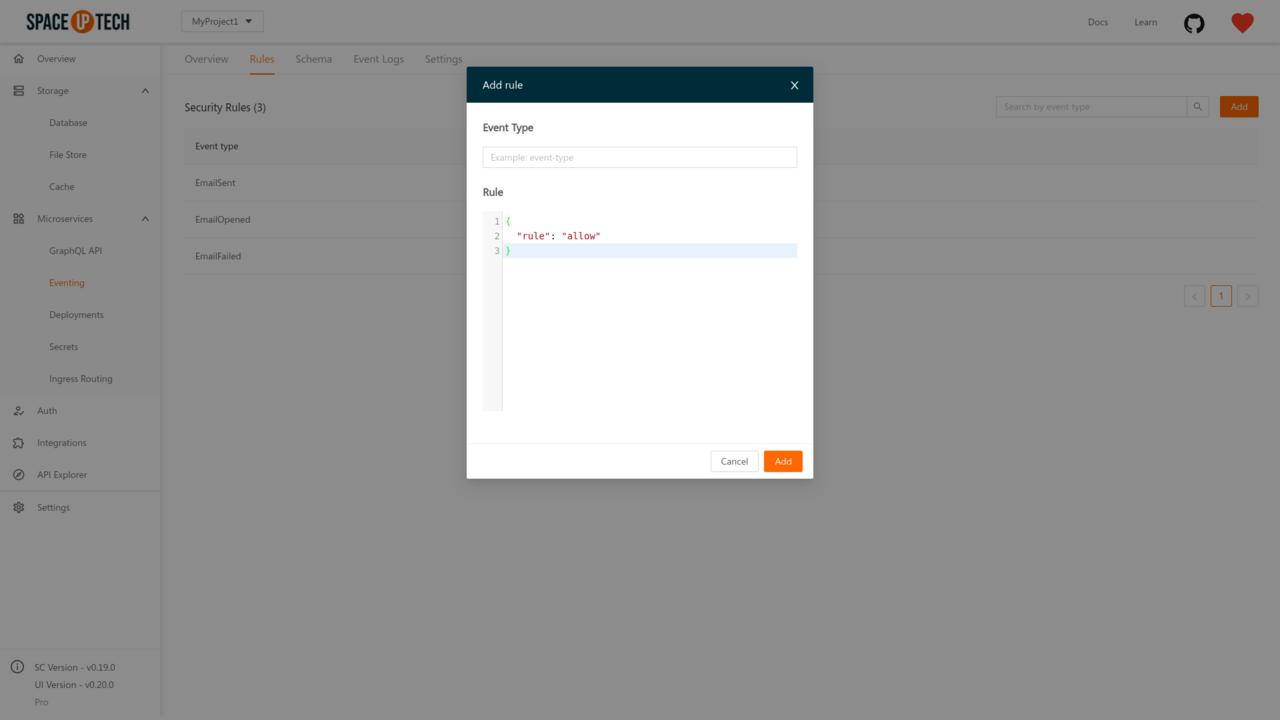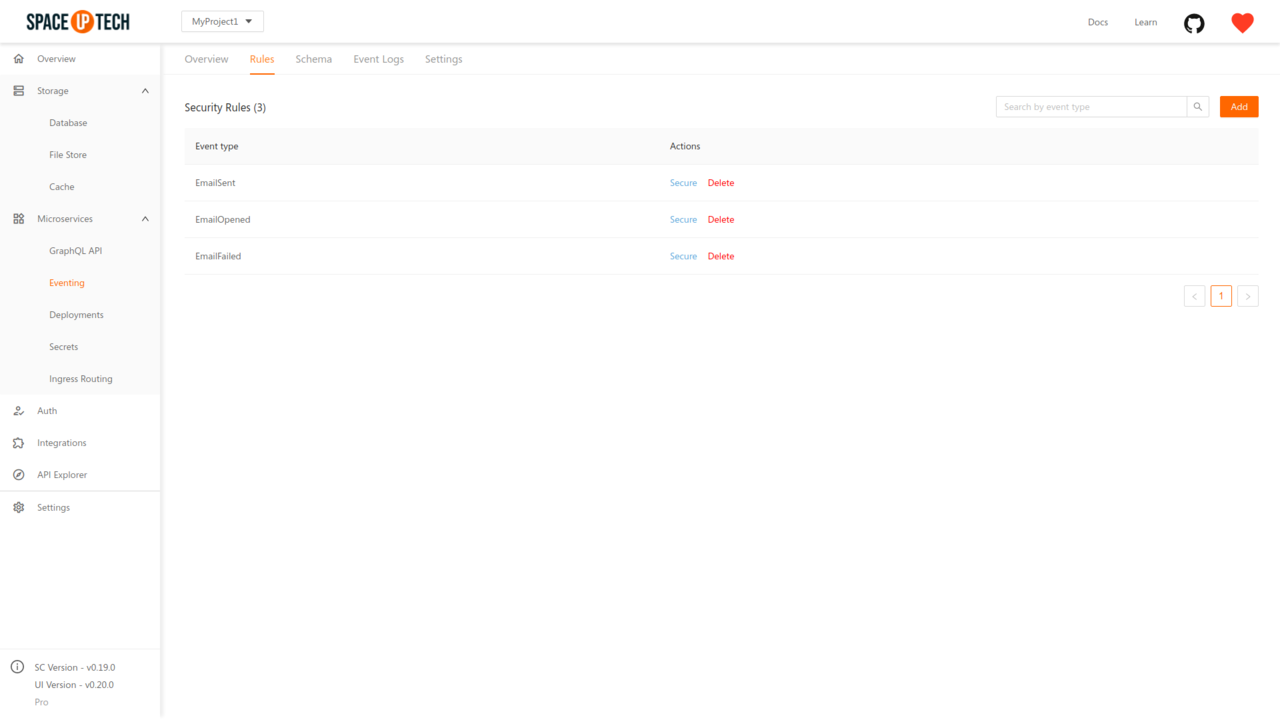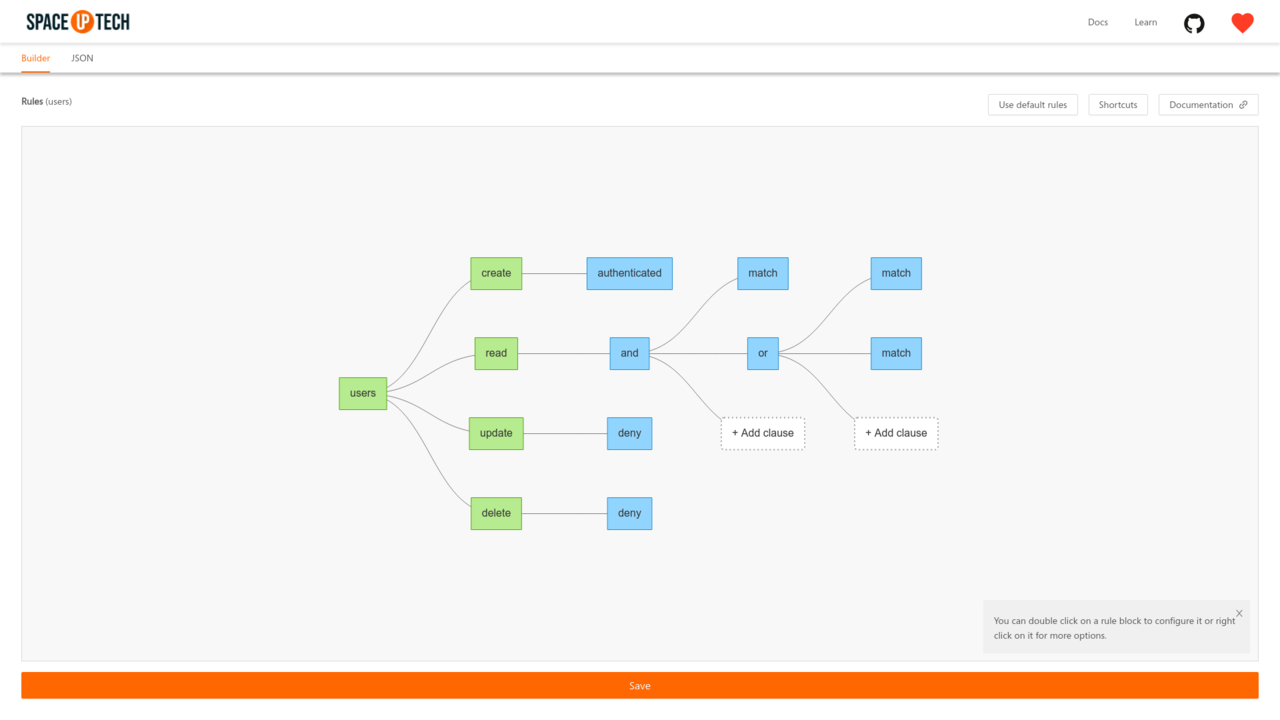
You can easily configure the access control logic for queuing/triggering custom events with Space Cloud’s security rules. The security rules for custom events work on the event type level. This means you can have different rules for different types of custom events.
Note: You only need to secure custom events as they are queued via REST API of Space Cloud, unlike database and file storage events that are queued by Space Cloud internally.
Here’s a sample snippet which shows the rules of a custom event type MY_EVENT_TYPE:
{
"rule": "allow"
}You can add rules for each custom event type. A request to queue an endpoint is denied if there is no rule for its type. This ensures that all calls to queue events are secure by default.
Space Cloud’s security rules are flexible enough to enforce any access control logic including querying your databases, validating conditions and masking private data. Check out the documentation of security rules to learn more.
Head over to the Rules tab in the Eventing section of the Mission Control. Click on the Add button to open the following modal:

Enter the event type that you want to secure. The default security rules would be prefilled for you. You can change it now or even later with the Rule Builder or the JSON editor.
To modify a rule, click the Secure button from the Actions table:

This will open a Rule Builder UI to configure the rules easily:

The rule editor also comes packed with quite a few shortcuts to make you feel productive.
If you are more comfortable with JSON, you can switch to the JSON editor as well by clicking on the JSON tab.
Following are the variables available in the security rules for custom events:
| Variable | Data type | Description |
|---|---|---|
args.auth |
Object | Object containing the JWT claims present in the token. |
args.params |
Object | The event data object. |
args.token |
String | Raw token present under the Authorization header in the request. (with the Bearer prefix removed) |